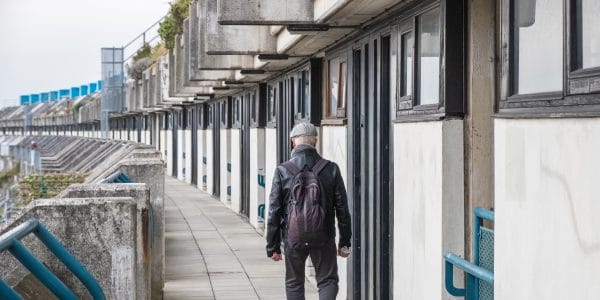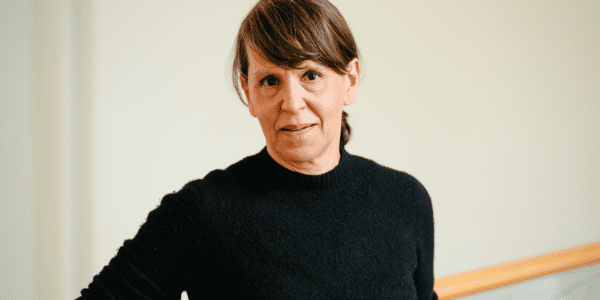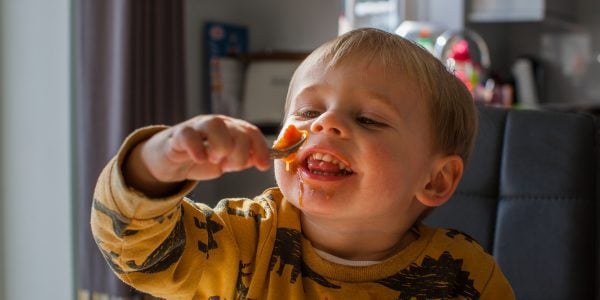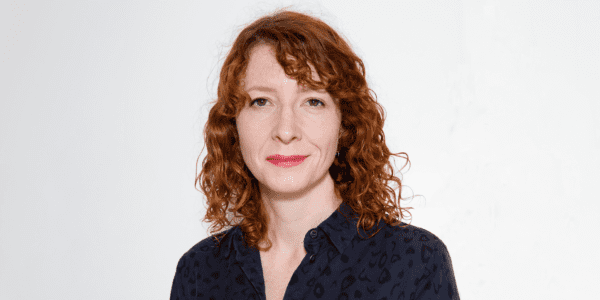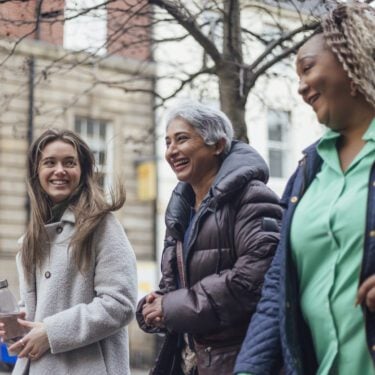
20/04/21
4 min read
As we launch a new series to bring together perspectives from three Nuffield Foundation projects on well-being, people and places, our Welfare Programme Head, Alex Beer explores some of the opportunities and challenges that come with collaboration.
Read any of the research outputs from projects we have supported and somewhere there should be an acknowledgement of our funding: “The Nuffield Foundation is an independent charitable trust with a mission to advance social well-being. It funds research that informs social policy, primarily in Education, Welfare, and Justice…”
This statement is important, because aiming to understand and advance well-being is the driving force behind the projects we fund and provides a common thread between them. In May 2017, that thread was particularly apparent between three separate projects under consideration for funding. They were all directly interested in individual well-being, particularly in subjective measures of well-being, and in how it is changing over time and affected by local experience. We spotted an opportunity in funding these three projects for them to learn from each other and provide complementary perspectives that might add to the depth and breadth of understanding on how well-being is connected to people and to places.
Each project is interesting and important in its own right. Gundi Knies and Patricia Melo investigated how place shapes people’s social and economic outcomes and the degree to which it affects their subjective well-being. Their aim, to provide new evidence on the presence and relative contribution of ‘place effects’ to individual outcomes. Peter Howley, Mirko Moro, Tony Heron, Liam Delaney and Muhammad Waqas explored the effect of immigration, measured at local authority level, on the subjective well-being of local populations. While existing evidence shows that immigration had few, if any, negative effects on economic well-being, might there be effects on other measures of well-being, such as life satisfaction or perceptions of safety? Miguel Ramos, Matthew Bennett, Miles Hewstone and Douglas Massey focused their attention on the impact of ethnic diversity, and of contact between different ethnic groups, on well-being and health. Like the others, they proposed to look at effects at the local authority level, but also make cross-country comparisons.
While the potential driver of well-being is different in each case (place, immigration, ethnic diversity), there were some additional commonalities that brought these projects together. They were united by their reliance on high quality longitudinal data with sufficient possibilities for granularity at the local level to give them a fighting chance of being able to answer their research questions. Other datasets are available, and were used by the projects, but common to all of them was the UK Household Longitudinal Study. This important dataset captures information every year (and more frequently during the COVID-19 pandemic) about the social and economic circumstances and attitudes of people living in the UK and is an important quantitative data resource for many of our grant-holders. However, no dataset is perfect, and the three projects faced the shared challenge of developing strategies to disentangle effects of locality from the non-random mechanisms that influence where people live, and resolution of other issues in order to get at the heart of the relationships between cause and effect.
The projects got underway in the aftermath of the 2016 referendum on the UK’s membership of the European Union, in a time before COVID-19. The data used in the studies pre-dates the pandemic and some of the research questions investigated spoke to particular concerns, such as the relationship between subjective well-being differences and voting patterns on Brexit. But their findings are incredibly pertinent now, as the UK attempts to navigate the consequences of the pandemic, because they provide insights into the way that well-being is shaped by place, the people around us, and our interactions with them over time. They resonate with the current policy focus on place, in relation to the levelling up agenda, but also with interests in hyperlocal and community responses to COVID-19, and how community attributes might relate to well-being.
There is no need for any significant spoiler alert here, but watch this space, because over the coming weeks the content in this series will grow, with inputs from each of the projects highlighting key findings and signposting to more detailed information. We will also bring the findings together in a webinar on Wednesday 16 June, that will focus on the concrete steps and well-being policies for integration, diversity and better neighbourhoods. The webinar will feature responses from world-leading experts on well-being, immigration, community and diversity.
Facilitating and supporting connection and collaboration between the projects we fund is part of what makes the Foundation distinctive as a funder.
I cannot state with certainty that each of the projects is richer for their collaboration, but it is my belief. I have had the privilege of supporting these projects throughout their journeys and have witnessed the interactions and shared learning between them. I have seen constructs from psychology inveigling their way into a project led by economists, and teams being challenged on the appropriate spatial scale that might be used for analysis. I have seen ideas shared and challenged, and networks grow. Such ways of working are not cost-free – it takes time and resources to collaborate in this way and there are lessons to be learned about how best to balance the benefits and costs of collaboration, but the greater acceptance of virtual ways of working, connecting, and sharing knowledge makes this easier than perhaps it was a few years ago. Facilitating and supporting connection and collaboration between the projects we fund is part of what makes the Foundation distinctive as a funder. I am looking forward to sharing the ideas, discussing policy implications with wider audiences and identifying opportunities to effect change in policies and practices that will improve well-being and opportunity in the years to come.
Read more
About the author
Alex Beer is a Programme Head at the Nuffield Foundation, responsible for delivering strategic priorities through bold new projects and collaborative partnerships, alongside contributing to the development and management of the Welfare grants portfolio.
Prior to joining the Foundation, Alex was a senior economist in government, with over 15 years of professional experience leading evidence-based policy change. She led development of the Department for Work and Pensions’ Evidence Strategy, ran the department’s Model Development Unit and worked across government to establish and lead the cross-departmental Child Poverty Unit as its Head of Strategy and Analysis.
